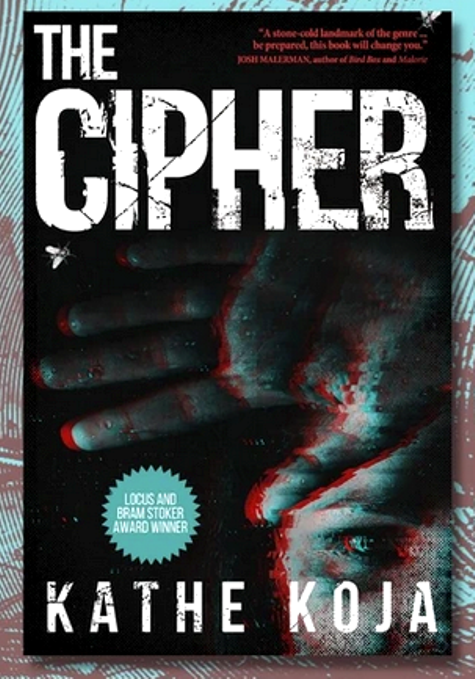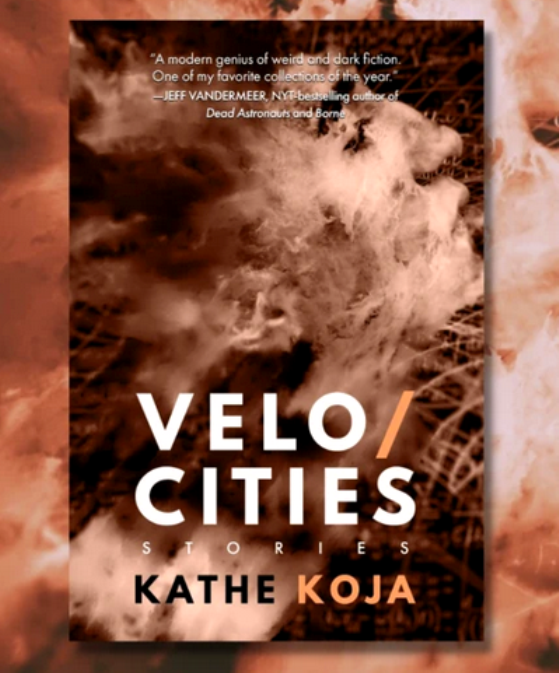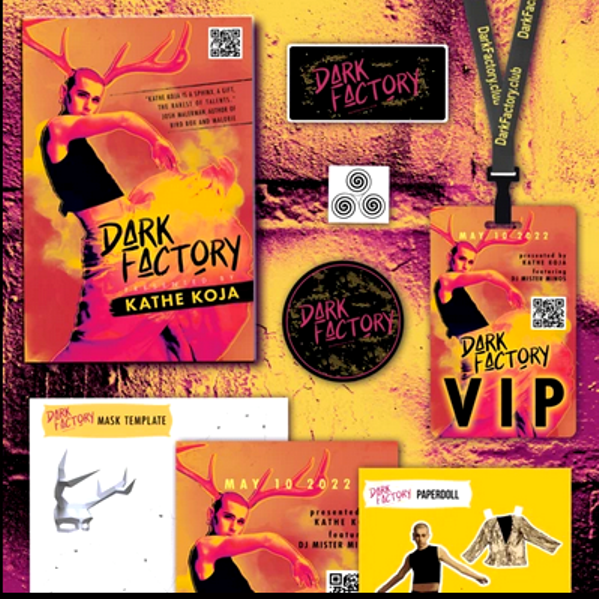
On this month's Special Page:
An exclusive interview with best-selling author Kathe Koja
IN THE "SPECIAL PAGE" ARCHIVES:
Joe R. Lansdale
Nicholas Vince
Elizabeth Massie
Christopher Golden
Mort Castle
Josh Malerman
About Kathe Koja
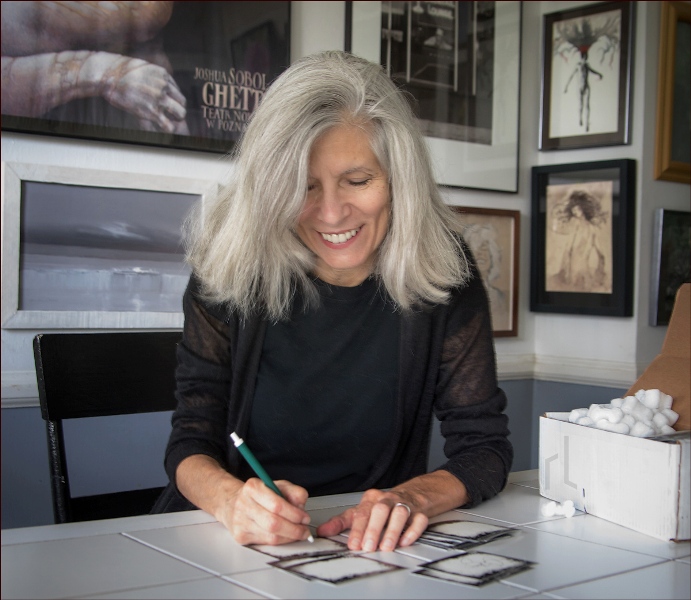
Photo credit: Rick Lieder
Kathe Koja is an international best-selling author who writes novels and short fiction, and creates, directs and produces immersive events. She is the winner of the following awards: Shirley Jackson Award, Bram Stoker Award, ASPCA Henry Bergh Award, Gustavus Myers Award, Locus Award, Spectrum Award, Parents’ Choice Award, ALA Best Book for Young Adults, Philip K. Dick Award and World Fantasy Award.
You can find her official website HERE
About the interviewer, Trish Wilson
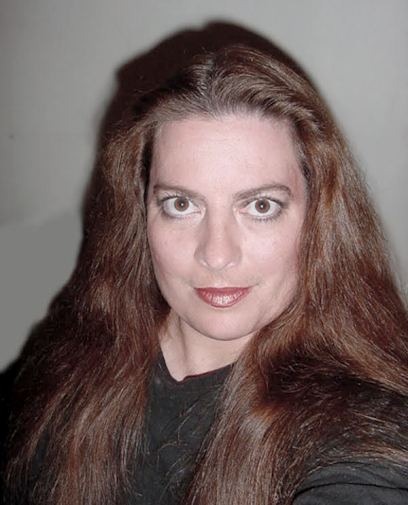
Elizabeth Black's short fiction has appeared in Zippered Flesh 3, Wicked Women: An Anthology of the New England Horror Writers, Teeming Terrors, The Horror Zine's Book of Ghost Stories and more. Using her real name, Trish Wilson, she is the Media Director for The Horror Zine.
Follow her on Facebook - https://www.facebook.com/elizabethablack
AN INTERVIEW WITH KATHE KOJA
TRISH WILSON: How did the 1984 Clarion workshop you attended change your life? You won a Susan C. Petrey scholarship.
KATHE KOJA: I did, and it did change my life – as a reader as well as a writer. I learned to really read at Clarion, both critically and for flow, and it informed everything I did and have done afterward. And at Clarion the great Kate Wilhelm confirmed that yes, I was indeed a writer – being recognized is so very powerful.
TRISH WILSON: Who are some of your favorite writers? Who are your influences?
KATHE KOJA: Shirley Jackson was a lasting influence on my work, especially her insistence on economy: every word in a story has to have a reason to be there. Emily Brontë was probably my very earliest influence, her indelible headlong drive to tell the story she wanted to tell, and no other. Other writers whose work I love are Christopher Marlowe, Emily Dickinson, Angela Carter, Russell Hoban, Maryse Meijer.
TRISH WILSON: What would you say are the major themes in your works?
KATHE KOJA: I’m too close to the work to see it that way – but everything turns on an axis of art/creation for my characters, that I know.
TRISH WILSON: In addition to horror, you write young adult fiction. What do you like best about both genres?
KATHE KOJA: I also write historical fiction – the Under the Poppy trilogy – and what I love about all genres is that feeling of having come to a party already in progress, where people are willing to welcome you because you’re all dancing to the same music. Writing in different genres has introduced me to a lot of excellent bylines and books, too.
TRISH WILSON: You wrote "straydog" as a short story that turned into a novel. You also have written a short story collection, "Velocities". How is the experience of writing a short story differ from writing a novel for you? Do you prefer one over the other?
KATHE KOJA: I have another short fiction collection as well, Extremities.I don’t have a preference for one form over another, as a writer or a reader. The experience differs mainly in depth: some characters and ideas feel like, are meant to be, novels, others are meant to be stories. I’ve tried to expand some stories that just absolutely did not work at novel length – straydog was the exception that proves the rule, I guess.
TRISH WILSON: Animal rights is important to you. What is your experience working with the Michigan Humane Society? I bet it is very rewarding. I’m an animal lover myself, especially cats. Do you have pets? Have your pets ever figured into your work?
KATHE KOJA: Fellow cat lover! I’ve lived with cats for most of my life, and right now our house lion is Dash, king of everything. I was a very happy volunteer for years at MHS and Michigan Anti-Cruelty Society, working events and spending time at the shelter—some of that camaraderie and love for the animals is definitely reflected in straydog. And animal rights are very important to me (it’s why I’m vegan) but even more so to the animals themselves.
TRISH WILSON: You've collaborated on a large number of short stories with Barry N. Malzberg and Carter Scholz. What would you say to a writer who is considering collaborating with another writer? What are some tips you would offer? What was your experience with collaboration?
KATHE KOJA: Supremely positive. A good collaboration is really effortless, in the sense that everyone’s working hard but no one’s straining or forcing the material, you’re both in the same flow, in service of a third voice, the shared voice. I’ve collaborated as a director on live immersive events, too, with a wildly talented group of artists of various disciplines, and found the same experience there. My only advice would be, if the collaboration stops being fun, if it’s turned into a struggle, then it’s time to call a halt and reconsider if these two (or five, or twenty) voices can really become one.
TRISH WILSON: You recently adapted "Under The Poppy" for the stage. What was that experience like for you? How different is writing a play for you from writing short fiction and novels?
KATHE KOJA: Surprisingly similar, once I understood the rules of the task, and that the visual, audio, and tactile aspects were going to do a lot of the heavy lifting. To adapt my own work, like Poppy, or books I love, like Wuthering Heights and Dracula (both of which I recreated as immersive performances), I had to learn to understand, What’s the main question here, what is the audience being asked? For Poppy it was, Does love really conquer all? For Dracula it was Who gets to eat whom? And WH was Should we do the moral thing, or the right thing?
TRISH WILSON: Did you have mentors early in your career who helped you? If you did, who were they? What kind of help did they give you? I've noticed some writers have had mentors and they've maintained professional relationships and even friendships with them.
KATHE KOJA: Kate Wilhelm, as I mentioned, was pivotal in her kindness and her recognition, and that made a huge difference to me. Her trust taught me to trust myself.
TRISH WILSON: What scares you?
KATHE KOJA: Malignant ignorance.
TRISH WILSON: Where did the idea of the Funhole in "The Cipher" come from? Which messages did you wish to convey with this novel, and do you think you succeeded?
KATHE KOJA: No messages, the book will be different for every reader, and every reader makes it their own in the process of reading. And the Funhole came from Nicholas, who was a character in an early, unfinished novel that was going nowhere—fitting!—who, when I took him away from that setting and looked at him on his own, brought both the Funhole and Nakota along for the ride.
TRISH WILSON: "The Cipher" was first published in 1991, and it has recently been reissued by Meerkat Press with an afterword by Maryse Meijer. It has won the Bram Stoker Award and the Locus Award. The novel also has quite a following, and it has been mentioned as one of the top horror novels of the past few decades. Why do you think it has struck such a chord?
KATHE KOJA: There’s definitely something about the Funhole’s ultimate unknowability, its refusal to be investigated, tamed, or eradicated, that continues to speak to readers. And that mystery means we can read it any way we wish.
TRISH WILSON: Tell me about your immersive fiction project, "Dark Factory". How may readers access it?
KATHE KOJA: Dark Factory is the story of a wild dance club, drinks and DJs and customizable reality (think VR/AR). Ari Regon is the club’s hotshot manager, Max Caspar is a stubborn DIY artist, and Marfa Carpenter is a journalist there to get the real story. And that story is already in progress at https://darkfactory.club/ where Ari, Max, and Marfa post (as well as on IG and Twitter and FB), and I post too, as the Dark Factory world develops and grows in real time.
Tricia Reeks at Meerkat Press has been the perfect publishing collaborator—she intuitively got the immersive concept as well as the story, and she and I are having a blast putting all this together. If you preorder the print book package, you’ll get our hand-selected immersive swag, physical and downloadable—signed book, VIP pass, paper dolls, and a bunch more.
TRISH WILSON: What are your current projects? What do you have planned for the future?
KATHE KOJA: My life from now until May 2022 is Dark Factory, all day all night.
TRISH WILSON: How may readers find you on the web? Web site, Facebook, Twitter, Patreon, etc.?
KATHE KOJA: I’m on Twitter @KatheKoja, Facebook, I lurk on IG, and my Patreon is https://www.patreon.com/kathekoja Or contact me at https://kathekoja.com/
